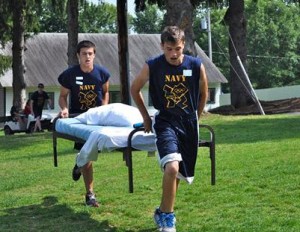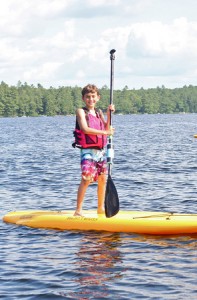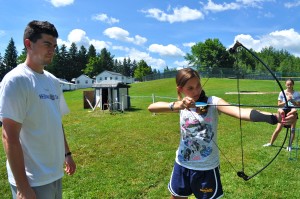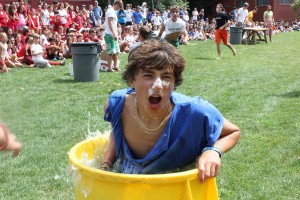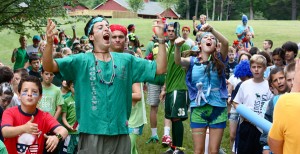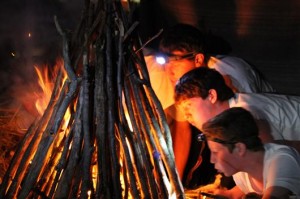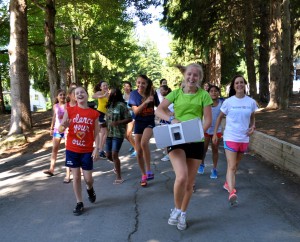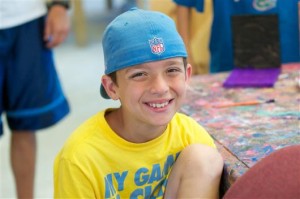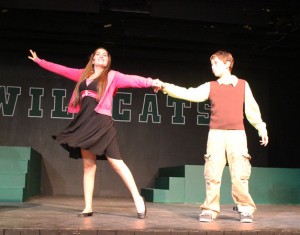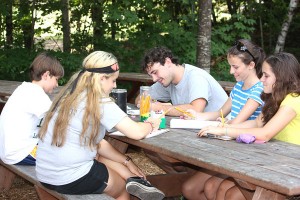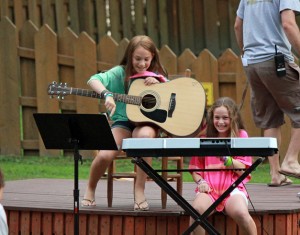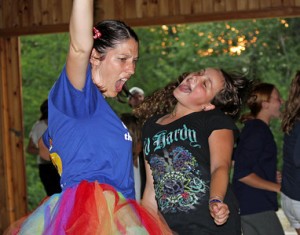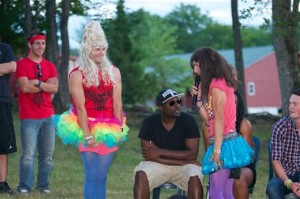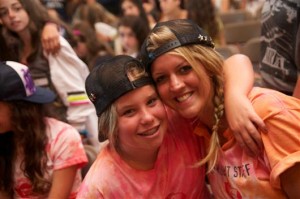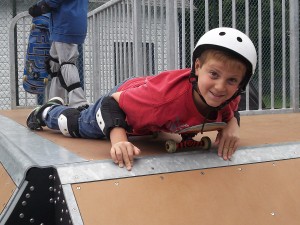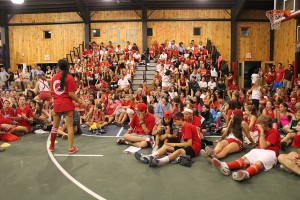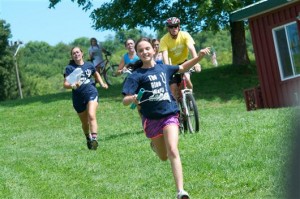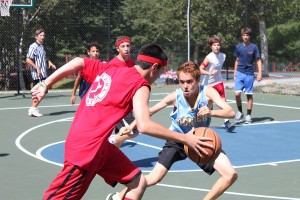The guest blog this week is from Camp Laurel South and was originally posted to Laurel South’s bl0g on October 19, 2012.
Orientation
 I had no idea what to expect! Old fashion Scout cabins? Canvass tents? Teepees? How rustic is this camp? The cabins are really cool though; they are definitely “campy”… but fun, clean spaces with lots of bunk beds, cubbies, and big open floors to hang out on. Surprisingly, all of my clothes fit in my cubby! Maybe I managed to follow the packing list, or maybe the cubbies are just the right size, but either way, unpacking is a success!
I had no idea what to expect! Old fashion Scout cabins? Canvass tents? Teepees? How rustic is this camp? The cabins are really cool though; they are definitely “campy”… but fun, clean spaces with lots of bunk beds, cubbies, and big open floors to hang out on. Surprisingly, all of my clothes fit in my cubby! Maybe I managed to follow the packing list, or maybe the cubbies are just the right size, but either way, unpacking is a success!
I also didn’t know what to expect with the food. Very happy to report there are tons of options including a full salad bar every day. I’ve made some healthier choices and learned to depend on other things for energy instead of coffee all day long. An apple at mid-morning Fruit Break gives you an extra boost until lunch!
Tomorrow we’ll be getting to know the campers in our cabins; their names, where they’re from, what they like to do, etc. This is getting me super excited to meet them! Although I’m really nervous they won’t like me as much as the returning counselors. Speaking of which, I was a little intimidated by the returning counselors at first… they already had a close group of friends and I didn’t feel like I’d fit in. Now it’s only day 3 and I already have a great group of friends and the returners are awesome. Everyone is really welcoming! It’s very cool how quickly friendships are formed here.
 Week 1
Week 1
When the campers arrived two days ago it was an amazing scene. They were so excited to see each other. I felt a little left out that I didn’t know the kids yet but it’s been awesome getting to know them.
Today one of our activities was waterskiing. The kids were amazing! Some of them got up on their skis for the first time – I couldn’t believe it! I felt like a proud parent watching them. I was screaming and cheering for my kids out on the water. What an awesome day!!
Week 2
Today was a big tennis tournament. We had three other camps visiting as we hosted more than 80 matches. It was great! We also watched the big musical performance last night. I’ve heard the kids practicing for the past two weeks. There are some really talented kids here! I loved watching their friends in the audience cheering them on. Really cool! I can’t wait to see what acts surface at the next Talent Show.
This afternoon was Carnival. It was a great day of rides, games, carnival food and fun. Everyone loved it. A perfect way to break up the week!
Week 3
 At the beginning of the week my campers tried something new and awesome – ceramics! Most of them had never worked with clay before but they dove right in – and got pretty messy! They started with a pile of wet mush and by the end they had actual mugs! Some of my campers said they are going to give them to their parents…what thoughtful kids!
At the beginning of the week my campers tried something new and awesome – ceramics! Most of them had never worked with clay before but they dove right in – and got pretty messy! They started with a pile of wet mush and by the end they had actual mugs! Some of my campers said they are going to give them to their parents…what thoughtful kids!
Spirit Days has begun! It broke a few days ago and I never could have imagined what this was going to be like! The whole camp is split up in two teams, and we compete in every kind of event imaginable. From baseball, basketball soccer, gaga… even dance, trivia, canoeing, and crazy jello-filled relays.
The campers take the competition very seriously! This has probably been my favorite day at camp!
 Week 4
Week 4
NOO!! I do not want to leave my home! How is it possible that a month ago I had never been here and did not know all of these amazing people?! The friends that I have made here are going to be friends that I have for the rest of my life…and it feels like I have known them for years. The experiences I’ve had are unforgettable. While it was a little scary in the beginning, every little bump in the road was worth it. Most importantly, my campers feel like my family. Every day for the past four weeks we have gone to sports and activities together, cleaned the cabin together, eaten all of our meals together, danced, shot hoops, hugged, fallen asleep next to each other, and had more fun than I could have imagined possible. If that’s not family then I don’t know what it is! I’m already counting down the days until next summer… I can’t wait to see how much they’ve grown in a year!
Jessica
First Year Counselor

 570-798-9831
570-798-9831
